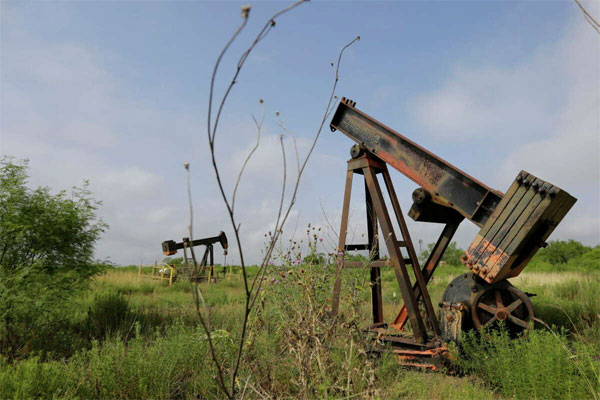State policies allow rule-breaking oil and gas companies to transfer plugging and cleanup costs of their abandoned wells to the state. The Railroad Commission of Texas, which despite its name oversees oil and gas development, has designed a broken system where the state routinely takes on risks from the industry without collecting enough taxes and fees from the industry to deal with those risks.
An orphaned well is an unplugged oil, gas, or injection well for which no viable responsible party can be located, or where the owner is known but bankrupt. But “orphan well” is just a legal classification. There are legacy wells that oil and gas companies plugged with inappropriate materials or by using practices that are now obsolete. These wells have crashed into public consciousness partly because they are affecting more and more Texans and are difficult to ignore. The oil and gas industry is exhibiting signs of systemic decline, meaning there will be more wells to plug in the near future. Texas needs to prepare for the transition to responsible asset retirement.
Our January 2022 report, Eliminating Orphan Wells and Sites in Texas, found that oil and gas drillers use loopholes to avoid plugging their wells, like keeping wells barely active just to avoid having to plug them. Texas incentivizes this practice by offering tax incentives for low-producing wells and high-cost gas wells. These tax incentives put the burden of potential orphan wells on the state while reducing state revenues available to deal with the aftermath.
The financial impact of orphaned wells, according to the report, is staggering. About 47% of the Railroad Commission’s entire budget goes to well plugging. If companies cleaned up their own messes, then the Commission could invest in monitoring and enforcement. Recent well blowouts in Refugio, Ward, and Crane Counties; leaks and sinkholes in Pecos County; and stranded equipment in the lower Brazos River watershed highlight the need for increased state oversight of legacy wells and reconfiguring the State Managed Well Plugging and Cleanup Programs.
Our March 2021 report, Unplugged and Abandoned, focused on the economic threat orphan wells pose to Texas. Combined with declining demand from depressed commodity prices, shifting consumer preferences and the global COVID-19 pandemic, the state faces a surge in oil and gas company bankruptcies and declining revenue from fees it collects from the industry. Meanwhile, the Railroad Commission of Texas—the state’s oil and gas regulator—has been asleep at the switch.
Insolvent or financially distressed operators exacerbate the potential economic risks, public health dangers and environmental hazards posed by unplugged and abandoned oil and natural gas wells. As the wellbore deteriorates, it can leach oil, gas, and residual drilling fluids into groundwater supplies. Unplugged and abandoned wells also can release methane, a powerful greenhouse gas, into the atmosphere and open pits for collecting wastewater or other byproducts of the drilling process can leak and pose threats to groundwater as well.
The Railroad Commission has had opportunities to confront the transition occurring in the energy business and better prepare for the declining revenue and rising environmental risks it poses. So far, however, it has failed to do so.
A five part explainer on all our orphaned well recommendations.

Commission Shift Statement on the End of the 2021 Regular Legislative Session